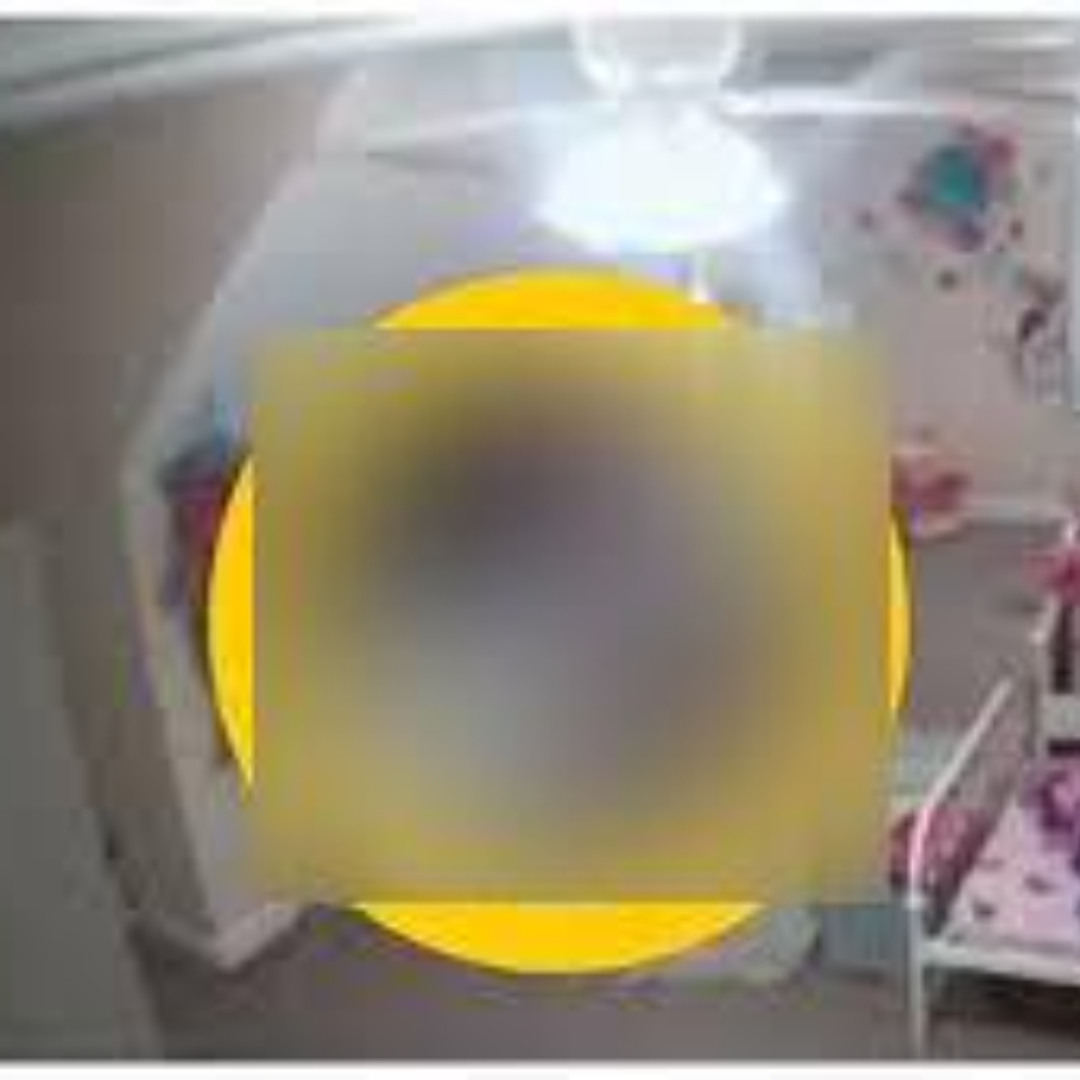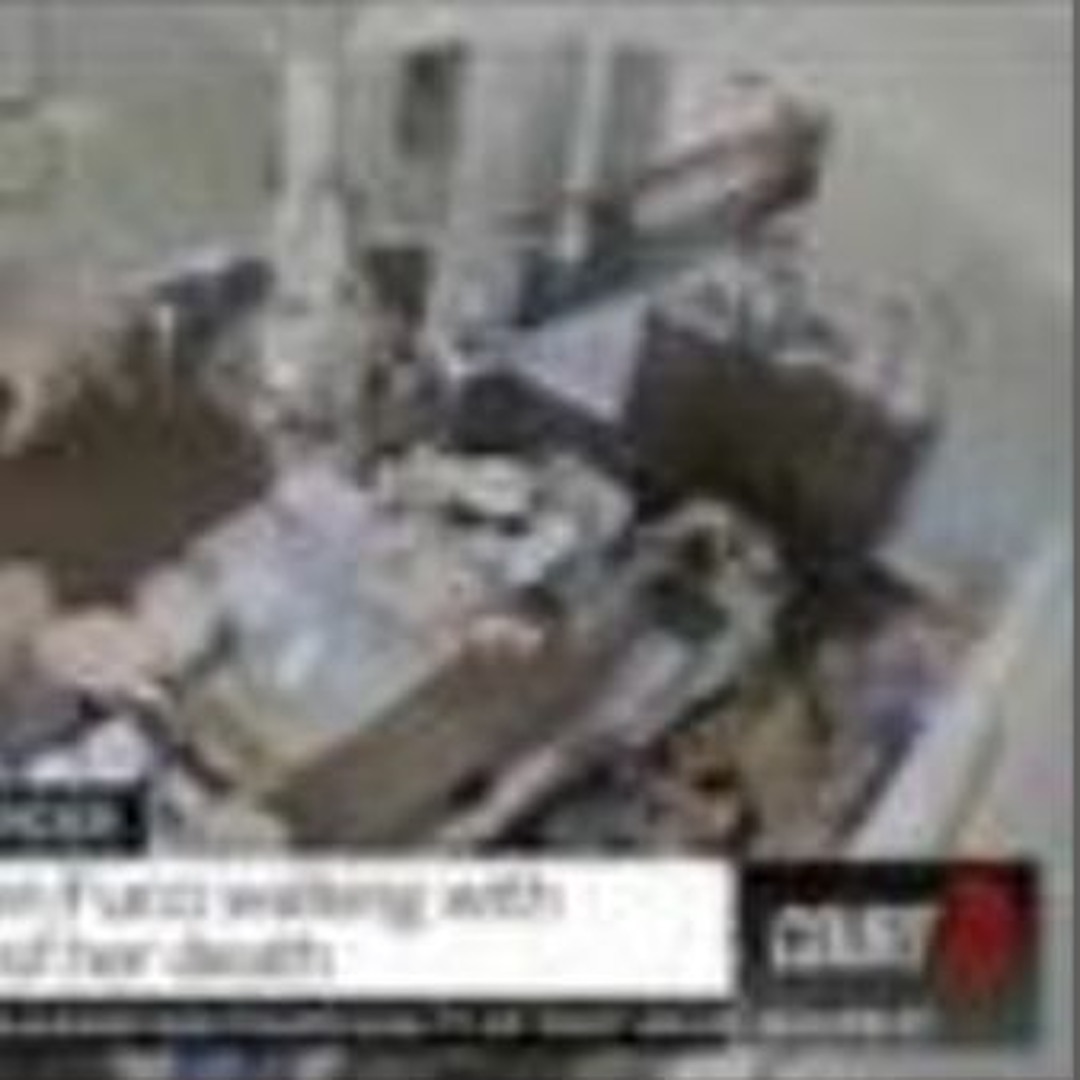When you see the phrase "buscar kid and mom cctv video original," it really hits home, doesn't it? That search, that need to find something specific, it speaks to a very human concern. It's about wanting to know, to understand, and often, to help. This kind of query, you know, often pops up when folks are looking for specific security camera footage involving a child and their parent. It's not just a technical search; it's a reflection of a deeper worry or a wish to get some clarity on something important.
The word "buscar," as we understand it, means to look or search for something. It can also mean to pick up, or even to provoke, in some ways. In this context, it's about actively trying to find a particular piece of visual evidence, like a security video. People might be trying to piece together an event, help out with a situation, or simply understand what happened in a given moment. It’s a very active kind of search, really, and it often carries a lot of feeling behind it.
This article is going to take a closer look at what it means when someone tries to "buscar kid and mom cctv video original." We'll talk about why these kinds of searches happen, the bigger picture of security cameras and family safety, and some very important things to think about when you're looking for or sharing such sensitive information. We'll also touch on how you can keep your own loved ones safe, and some practical steps to consider, you know, in your everyday life.
Table of Contents
Understanding the Search for "Buscar Kid and Mom CCTV Video Original"
What Does "Buscar" Really Mean Here?
Why Are People Looking for These Videos?
The Role of CCTV in Family Safety
How CCTV Footage Can Help
The Privacy Dilemma
Responsible Searching and Information Sharing
Verifying Sources and Avoiding Misinformation
Ethical Considerations When Sharing
Protecting Your Loved Ones: Practical Steps
Home Security Camera Tips
Teaching Kids About Safety
Frequently Asked Questions About CCTV and Family Safety
Understanding the Search for "Buscar Kid and Mom CCTV Video Original"
When someone types "buscar kid and mom cctv video original" into a search bar, it's not just a string of words. It's, like, a window into a particular kind of need or curiosity. This phrase points to a very specific kind of visual record. People are often hoping to find unedited, firsthand accounts of events captured by security cameras. It’s a very direct way of seeking information, and that, is that, something we see quite a bit in online searches.
What Does "Buscar" Really Mean Here?
The word "buscar" is Spanish, and it means "to look for" or "to search for." It's a pretty straightforward word, but in this context, it carries a bit more weight. It's not just a casual search; it's often a purposeful hunt for something specific. You know, it can mean "to look for" in the sense of trying to find a lost item, but it can also mean "to seek out" information or evidence. So, when people are trying to "buscar" these videos, they're actively trying to locate them, perhaps because they believe these videos hold some kind of key information or a piece of a puzzle.
The original text tells us "buscar" can mean "to look/search for," "to pick up," "to provoke," or "to look for, seek, search, look up, look out." It's a very versatile verb, really. In the phrase "buscar kid and mom cctv video original," the most fitting meaning is "to search for." People are trying to track down a specific video clip, often because it might show something important related to a child and their mother. It's about finding that raw, unedited footage, which is very much what "original" implies. It’s a very direct request, you know, for that specific kind of content.
Why Are People Looking for These Videos?
There are quite a few reasons why someone might be trying to find "kid and mom cctv video original." Sometimes, it's about a genuine concern for safety. If a child goes missing, or if there's an incident, people might look for any available footage that could help. It's a natural human reaction to want to assist, or at least understand, what happened. This search can be a very important part of gathering clues, and that, is that, a big part of why these videos are sought after.
Other times, people might be looking for these videos out of simple curiosity, or because a story has gone viral. News reports often mention CCTV footage, and folks might want to see the original source for themselves. It's a way of getting closer to the actual event, or feeling more informed about a situation. However, it's also true that some searches might come from less helpful places, like just wanting to see something dramatic, which is, you know, something to be mindful of.
Law enforcement, or families directly involved, might also be searching for these videos as part of an investigation. They're looking for evidence, or trying to confirm details of an event. In these cases, the "original" aspect is very important, as it means the footage hasn't been tampered with or edited. It's about getting to the truth, and that, is that, a really big deal for everyone involved, obviously.
The Role of CCTV in Family Safety
Security cameras, or CCTV, have become a pretty common sight these days, you know, everywhere from public places to private homes. They play a very important part in keeping an eye on things, and for many families, they offer a sense of security. It's about having that extra pair of eyes, basically, even when you're not there. This technology has really changed how we think about safety, and that, is that, something we all experience now.
How CCTV Footage Can Help
CCTV footage can be incredibly helpful in many situations involving family safety. If a child wanders off, or if there's a suspicious person near a home, these cameras can capture important moments. The recordings can provide visual evidence that helps authorities identify individuals, track movements, or confirm timelines. It's like having a silent witness, and that, is that, pretty valuable when something unexpected happens. For instance, if a child is briefly separated from a parent in a busy place, reviewing camera footage can quickly help locate them, or at least show where they went. This can save a lot of time and worry, obviously.
Beyond emergencies, security cameras can also act as a deterrent. Just the presence of a camera can make someone think twice about doing something they shouldn't. It adds a layer of protection, sort of, to your property and your loved ones. For parents, it can offer a bit of peace of mind, knowing there's a record if anything were to happen. It's a way of being proactive about safety, and that, is that, something many people appreciate. For example, if you're worried about package theft, or just want to see who's at your door, a camera gives you that visual confirmation, which is very reassuring, you know.
The Privacy Dilemma
While CCTV cameras offer many benefits for safety, they also bring up some big questions about privacy. When footage of a child and a parent is shared, even with good intentions, it can sometimes cross a line. There's a delicate balance between public safety and an individual's right to privacy. Nobody wants their private moments, especially with their kids, broadcast without their consent. This is a very real concern, and that, is that, something we all need to think about when we see or share such videos.
The issue gets even more complicated when these "original" videos are widely distributed online. Once something is on the internet, it's incredibly hard to take it back. This means that footage, even if it was meant to help, could potentially be used in ways that are harmful or exploitative. It's a pretty serious responsibility, you know, when you're dealing with someone else's image, especially when children are involved. So, while the search for "buscar kid and mom cctv video original" might come from a good place, the sharing of it needs a lot of thought and care, obviously.
Responsible Searching and Information Sharing
When you're looking for or come across sensitive content like "kid and mom cctv video original," it's really important to approach it with a sense of responsibility. The internet is full of information, but not all of it is accurate or helpful. Being mindful of what you search for and what you share is a very big deal. It's about being a good digital citizen, basically, and that, is that, something we all can work on.
Verifying Sources and Avoiding Misinformation
In the age of quick information, it's very easy for misinformation to spread, especially when it comes to dramatic or emotional topics. If you're trying to "buscar" a specific video, or if someone sends you one, take a moment to consider where it came from. Is it from a reputable news source? Is it shared by official channels, like law enforcement? Or is it just a random post on social media? It's a good idea to be a bit skeptical, you know, and not just believe everything you see right away. Checking multiple sources can really help you get to the truth, and that, is that, a pretty smart way to go about things.
Sometimes, videos can be edited or taken out of context, completely changing their meaning. With the rise of deepfakes and other digital manipulations, it's even harder to tell what's real and what's not. So, before you share any "original" video, especially one involving children, try to verify its authenticity. Look for official statements, check timestamps, and see if the same video is being reported by trusted news outlets. It’s about being a bit of a detective, really, to make sure you're not accidentally spreading something false or misleading, which can happen, obviously, pretty easily.
Ethical Considerations When Sharing
Even if a video is real and seems to show something important, sharing it widely, especially if it involves a child and their parent, comes with some serious ethical considerations. Think about the impact on the individuals in the video. Are they victims? Are they in distress? Would they want this footage of a private moment, even a public one, to be seen by millions? It’s a very personal thing, you know, and their feelings matter. Sharing sensitive content can cause more pain or distress to those involved, even if your intentions are good. It’s a tough line to walk, sometimes.
Before you hit that share button, ask yourself: Is this truly necessary? Does sharing this video genuinely help the situation, or is it just contributing to a spectacle? In many cases, if authorities need a video, they will issue an official request. It’s usually best to let the proper channels handle sensitive information, especially when it involves children. Our responsibility, you know, as members of a community, is to protect the vulnerable, not to expose them further. So, think twice, really, before you share, because that, is that, a really big decision.
Protecting Your Loved Ones: Practical Steps
Beyond searching for or sharing specific videos, a really important part of this conversation is about how we can proactively keep our own families safe. It's about building a secure environment and teaching our kids good habits. It’s about being prepared, basically, and that, is that, something every parent wants to do for their children.
Home Security Camera Tips
If you're thinking about installing security cameras at home, or if you already have them, there are a few things to keep in mind to make them most effective and respectful of privacy. First, think about where you place them. Focus on entry points, like doors and windows, and areas where packages might be delivered. You generally don't need cameras pointing into your neighbor's yard or public spaces beyond your property line. It’s about protecting your own space, you know, without infringing on others. For more ideas on where to put cameras, you can learn more about home security planning on our site.
Make sure your cameras are set up securely. That means using strong, unique passwords and enabling two-factor authentication if it's available. Regular updates to your camera's software are also very important to fix any security weaknesses. Also, consider who has access to the footage. Only trusted individuals should be able to view or download recordings. It’s about keeping your data safe, basically, and that, is that, a really big deal these days. Remember, your home security system is meant to protect you, so make sure it's doing its job properly, and link to this page for more insights.
Teaching Kids About Safety
While technology like CCTV can help, one of the most powerful tools for child safety is open communication and education. Talk to your kids about personal safety in an age-appropriate way. Teach them about safe strangers (like police officers or store clerks with uniforms) and unsafe strangers. Help them understand what to do if they get lost, like finding a designated safe spot or asking for help from a parent with children. It’s about empowering them, you know, to make good choices and know how to react in tricky situations.
Practice scenarios with them, like what to do if someone they don't know tries to talk to them, or if they feel uncomfortable. Teach them about "no, go, yell, tell" – saying no, running away, yelling for help, and telling a trusted adult. These conversations should be ongoing, not just a one-time talk. It’s about building their confidence and awareness over time, and that, is that, a really big part of keeping them safe in the world. Being prepared, in a way, is the best defense, obviously.
Frequently Asked Questions About CCTV and Family Safety
Here are some common questions people often ask about security cameras and keeping families safe:
Is it legal to record people with CCTV in public places?
Generally, yes, it is legal for businesses and public entities to use CCTV in public areas, like sidewalks or storefronts, where there's no reasonable expectation of privacy. However, laws can vary by location, so it's always a good idea to check local regulations. It's about balancing public safety with individual rights, you know, which can be a bit tricky.
How long is CCTV footage typically kept?
The length of time CCTV footage is kept really depends on the system owner and their policies, or sometimes on legal requirements. For businesses, it might be anywhere from a few days to several months. For home systems, it depends on storage capacity; some systems might overwrite older footage after a week, while others could store it for much longer, especially if it's cloud-based. It's not a fixed rule, basically, so it varies a lot.
What should I do if I find a suspicious video online involving a child?
If you come across a video online that seems suspicious or shows a child in distress, the best thing to do is to report it to the platform where you found it (like YouTube, Facebook, etc.) and, if it seems serious, to your local law enforcement or child protection services. Do not share it widely, as this could cause more harm or interfere with any potential investigation. It's about being responsible, you know, and letting the right people handle it.



